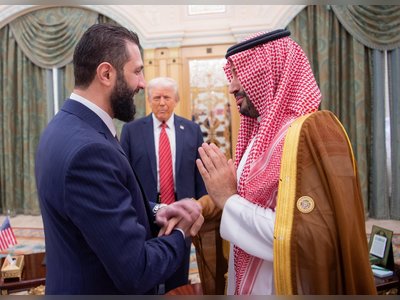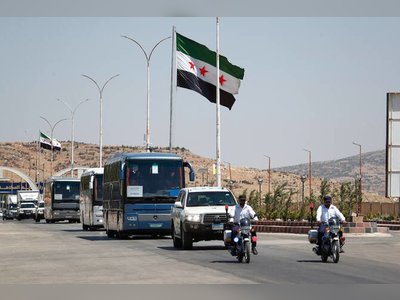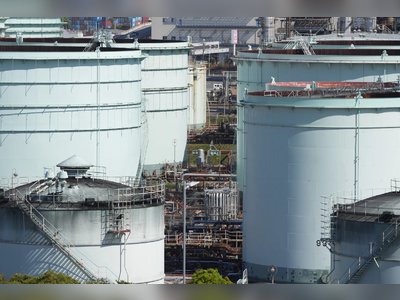Israel Fails to Condemn UNRWA in UN Independent Inquiry
UN Probe Clears Agency Staff of Terrorism Charges.
The final report from the Independent Inquiry Commission appointed by the United Nations regarding Israeli allegations of involvement of staff members from the United Nations Relief and Works Agency for Palestine Refugees in the Near East (UNRWA) disclosed that Israel failed to provide evidence supporting its accusations against the UN agency concerning the employment of individuals affiliated with "terrorist groups." Moreover, it emphasized that the agency has robust frameworks to ensure compliance with the principles of humanitarian neutrality, despite some ongoing issues.
UN Secretary-General António Guterres formed this independent commission led by former French Foreign Minister Catherine Colonna following Israeli claims in late January about the involvement of 12 UNRWA staff in a Hamas attack against Israeli settlements and kibbutzim around Gaza on October 7 last year.
These allegations led the United States, along with more than a dozen other countries, to suspend their funding for UNRWA, although many have since resumed payments.
Israel has long pressured for the shutdown of UNRWA, arguing that it helps perpetuate the conflict with the Palestinians by granting refugee status to the descendants of those displaced from their lands. Additionally, Israel accuses the agency of employing individuals "hostile to Israel" and using textbooks it deems "inciteful."
The United Nations distanced itself immediately from the accused employees and initiated an internal investigation. Additionally, Guterres tasked the committee chaired by Colonna to conduct a comprehensive review of the agency's neutrality.
No Evidence Found
Despite interviews conducted by Colonna and her team with UNRWA staff and Israeli and Palestinian officials, the independent commission, which includes three research organizations: the Raoul Wallenberg Institute in Sweden, the Michelsen Center for Human Rights in Norway, and the Danish Institute for Human Rights, noted that UNRWA regularly provides Israel with lists of its employees for verification, adding that "the Israeli government has not informed (UNRWA) of any concerns related to any of its employees based on staff lists since 2011."
The committee confirmed that Israel has not yet substantiated any of its broader claims regarding UNRWA staff involvement in activities of Hamas or Islamic Jihad, stating that in March, "Israel issued public allegations claiming a large number of UNRWA staff members are members of terrorist organizations. However, Israel has not yet provided supporting evidence for this claim."
UNRWA employs 30,000 Palestinians to serve the civil and humanitarian needs of 5.9 million Palestinian refugees in Gaza, the West Bank, and camps in Jordan, Syria, and Lebanon. Among these, about 2.3 million people in the Gaza Strip need urgent aid after most were forced to leave their homes due to the Israeli attack, struggling to access water, food, shelter, and medical care, with hundreds of thousands facing the risk of famine.
Indispensable Role
Colonna's review clarifies that UNRWA is "indispensable" for Palestinians across the region, stressing that "in the absence of a political solution between Israel and the Palestinians, UNRWA remains central in providing life-saving humanitarian aid and fundamental social services, especially in health and education for Palestinian refugees in Gaza, Jordan, Lebanon, Syria, and the West Bank." Thus, "UNRWA's and its human development and economic services for Palestinians are irreplaceable."
While recognizing that UNRWA is indeed stricter than most similar institutions, the committee confirms that there are several ways to improve "neutrality guarantees" for the UN agency's staff, such as expanding internal oversight capacity, providing more personal training, and more support from donor countries.
The report stated, "The review revealed that UNRWA has established a significant number of mechanisms and procedures to ensure compliance with humanitarian principles, focusing on the principle of neutrality," adding that it "possesses a more advanced approach to neutrality than other UN entities or similar NGOs."
Antisemitism Claims
In addition to Colonna's report, the three Scandinavian research bodies sent a more detailed technical assessment to the United Nations, also stating: "To date, the Israeli authorities have not provided any supporting evidence and have not responded to UNRWA's letters in March, and again in April, requesting names and supporting evidence that would enable UNRWA to initiate an investigation."
They found "very limited" evidence supporting Israeli recurring claims against UNRWA that its schools across the region use Palestinian Authority textbooks with antisemitic content.
"Three international assessments of Palestinian Authority textbooks in recent years have provided a precise picture... Two identified the presence of bias and hostile content, but neither provided evidence of antisemitic content." Moreover, a third assessment conducted by the Georg Eckert Institute in Germany "examined 156 Palestinian Authority textbooks and identified two examples that displayed antisemitic ideas, noting that one was already removed, and the other was modified."
Colonna's interim report to Guterres in mid-March found that "UNRWA has a large number of mechanisms and procedures to ensure compliance with the humanitarian principle of neutrality, while the committee identified critical areas still in need of addressing."
While the cessation of American funding continues until March 2025, most donor countries have recently resumed their funding for UNRWA.
The UN Internal Oversight Services is conducting a separate internal investigation regarding the October 7 attack.
UN Secretary-General António Guterres formed this independent commission led by former French Foreign Minister Catherine Colonna following Israeli claims in late January about the involvement of 12 UNRWA staff in a Hamas attack against Israeli settlements and kibbutzim around Gaza on October 7 last year.
These allegations led the United States, along with more than a dozen other countries, to suspend their funding for UNRWA, although many have since resumed payments.
Israel has long pressured for the shutdown of UNRWA, arguing that it helps perpetuate the conflict with the Palestinians by granting refugee status to the descendants of those displaced from their lands. Additionally, Israel accuses the agency of employing individuals "hostile to Israel" and using textbooks it deems "inciteful."
The United Nations distanced itself immediately from the accused employees and initiated an internal investigation. Additionally, Guterres tasked the committee chaired by Colonna to conduct a comprehensive review of the agency's neutrality.
No Evidence Found
Despite interviews conducted by Colonna and her team with UNRWA staff and Israeli and Palestinian officials, the independent commission, which includes three research organizations: the Raoul Wallenberg Institute in Sweden, the Michelsen Center for Human Rights in Norway, and the Danish Institute for Human Rights, noted that UNRWA regularly provides Israel with lists of its employees for verification, adding that "the Israeli government has not informed (UNRWA) of any concerns related to any of its employees based on staff lists since 2011."
The committee confirmed that Israel has not yet substantiated any of its broader claims regarding UNRWA staff involvement in activities of Hamas or Islamic Jihad, stating that in March, "Israel issued public allegations claiming a large number of UNRWA staff members are members of terrorist organizations. However, Israel has not yet provided supporting evidence for this claim."
UNRWA employs 30,000 Palestinians to serve the civil and humanitarian needs of 5.9 million Palestinian refugees in Gaza, the West Bank, and camps in Jordan, Syria, and Lebanon. Among these, about 2.3 million people in the Gaza Strip need urgent aid after most were forced to leave their homes due to the Israeli attack, struggling to access water, food, shelter, and medical care, with hundreds of thousands facing the risk of famine.
Indispensable Role
Colonna's review clarifies that UNRWA is "indispensable" for Palestinians across the region, stressing that "in the absence of a political solution between Israel and the Palestinians, UNRWA remains central in providing life-saving humanitarian aid and fundamental social services, especially in health and education for Palestinian refugees in Gaza, Jordan, Lebanon, Syria, and the West Bank." Thus, "UNRWA's and its human development and economic services for Palestinians are irreplaceable."
While recognizing that UNRWA is indeed stricter than most similar institutions, the committee confirms that there are several ways to improve "neutrality guarantees" for the UN agency's staff, such as expanding internal oversight capacity, providing more personal training, and more support from donor countries.
The report stated, "The review revealed that UNRWA has established a significant number of mechanisms and procedures to ensure compliance with humanitarian principles, focusing on the principle of neutrality," adding that it "possesses a more advanced approach to neutrality than other UN entities or similar NGOs."
Antisemitism Claims
In addition to Colonna's report, the three Scandinavian research bodies sent a more detailed technical assessment to the United Nations, also stating: "To date, the Israeli authorities have not provided any supporting evidence and have not responded to UNRWA's letters in March, and again in April, requesting names and supporting evidence that would enable UNRWA to initiate an investigation."
They found "very limited" evidence supporting Israeli recurring claims against UNRWA that its schools across the region use Palestinian Authority textbooks with antisemitic content.
"Three international assessments of Palestinian Authority textbooks in recent years have provided a precise picture... Two identified the presence of bias and hostile content, but neither provided evidence of antisemitic content." Moreover, a third assessment conducted by the Georg Eckert Institute in Germany "examined 156 Palestinian Authority textbooks and identified two examples that displayed antisemitic ideas, noting that one was already removed, and the other was modified."
Colonna's interim report to Guterres in mid-March found that "UNRWA has a large number of mechanisms and procedures to ensure compliance with the humanitarian principle of neutrality, while the committee identified critical areas still in need of addressing."
While the cessation of American funding continues until March 2025, most donor countries have recently resumed their funding for UNRWA.
The UN Internal Oversight Services is conducting a separate internal investigation regarding the October 7 attack.
Translation:
Translated by AI














